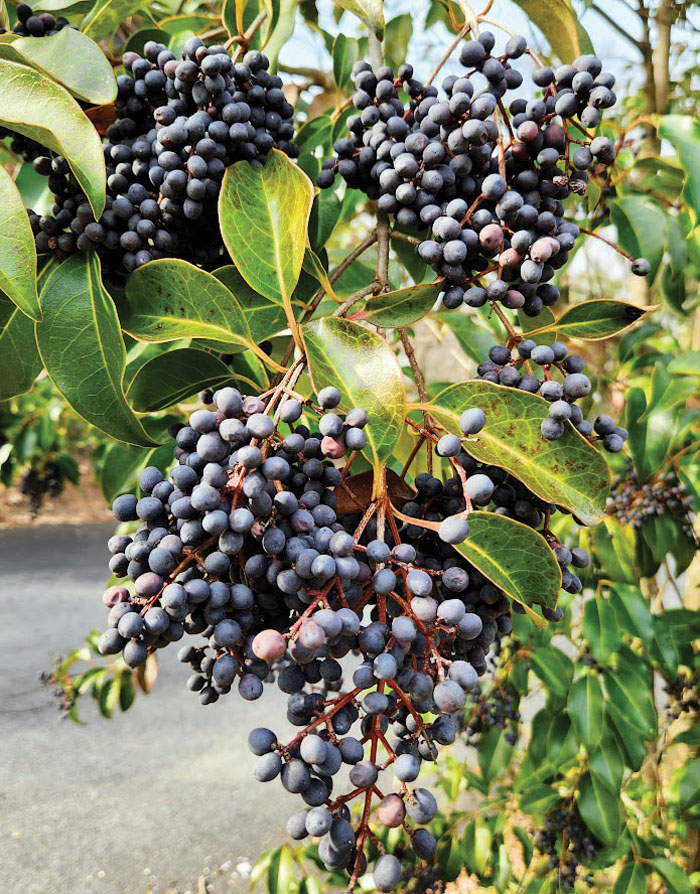Darrell Blackwelder: Chinese privet is an invasive shrub
Published 12:00 am Saturday, January 7, 2023

- Chinese privet fruit
While making my annual visit to the county tax office, a lady asked me about a shrub she observed on her way to work that had fascinating blue berries. It was a Chinese privet (Ligustrum sinense) loaded with purple berries and as colorful as I’ve seen in years, even surviving our current winter freeze.
Arriving in the mid-1800s from China, the fast-growing shrub was utilized as hedges in many landscapes. Unfortunately, these early plantings evolved into one of the worst invasives in the Southeast. Ligustrums adapt to different light conditions and a vast array of soil types. It can also thrive in wet to extremely dry habitats and is very tolerant to pollution. As a result, this shrub has become a problematic invasive, outcompeting and displacing native vegetation in the South.
The flowers are very aromatic producing an odor that many find unappealing. The flowers produce huge quantities of small dark fruit (drupes), maturing in August and September. Another downside of the plant is the fruit is poisonous, especially to dogs. The fruit readily consumed by birds, contributes to infestation throughout the county. The plant also has ability to reproduce vigorously by forming suckers.
Seedlings can be effectively controlled by hand-pulling; however, larger plants should be sprayed with glyphosate or brush killers containing triclopyr. Repeated treatments may be needed the next year to control sprouting suckers. Go to https://plants.ces.ncsu.edu/plants/ligustrum-sinense/ for more detailed information about this invasive shrub.
Darrell Blackwelder is the retired horticulture agent and director with the North Carolina Cooperative Extension Service in Rowan County. Contact him at deblackw@ncsu.edu.


